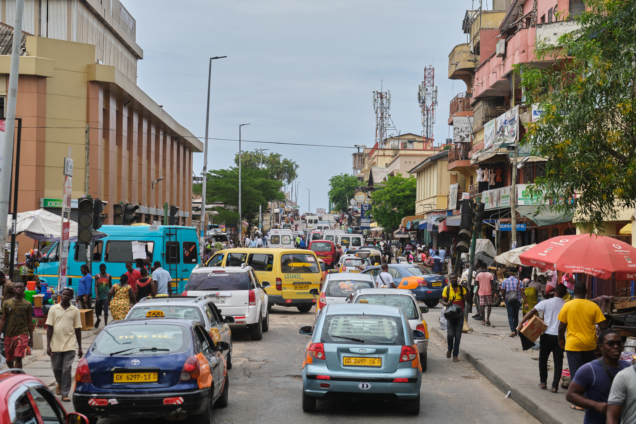Data from the Ghana Statistical Service reveals that nine out of the 261 district in Ghana, account for about 10 percent of the illiterate population. This is based on data from the 2021 Population and Housing Census, the statistical service emphasized.
According to the Statistical service, four of the nine districts are in the Northern Region, two in the North East Region, and one each in the Savannah, Volta, and Upper East regions.
The number of illiterates in districts is led by the Tamale Metropolitan Assembly, followed by, Nanumba North Municipal, East Mamprusi Municipal, Sagnarigu Municipal, Gushegu Municipal, West Mamprusi Municipal, Central Gonja, Ketu South Municipal, and Bawku West.

The Districts in total have 822,259 persons 6 years and older who are not literate and thus cannot read and write with understanding in any language. The total number of illiterates in Ghana is about 8 million people accounting for about 26% of the entire Ghanaian population. In simple terms one in four persons in Ghana is illiterate.

The details of the release also shows that one in five districts (56 out 261) in Ghana have at least half of the population 6 years and older being illiterates. In terms of percentages, the Karaga district had the highest rate of illiteracy with a rate of 81.0% followed by the Gushegu Municipal and North East Gonja districts with (80.7%), and (80.3%) rates of illiteracy respectively.
The data indicates that the Northern part of Ghana has the highest illiteracy rates as the section contains most of the districts with rate more than half.

The districts with the lowest illiteracy rates however seen in Greater Accra and the Ashanti regions with rates as low as 5.9%.
Illiteracy and Impacts
According to the United Nations, illiteracy not only limits the full development of individuals and their participation in society, but has repercussions throughout life, affecting a person’s family environment, restricting access to the benefits of development, and hindering the enjoyment of other human rights. They explain that, the impact of illiteracy can be divided into health, education, economics and social integration and cohesion.
Illiteracy among adults increases present and future socioeconomic vulnerability, and is a significant factor in the reproduction of such vulnerability through children.
Latest Stories
-
Bawumia’s music streaming app or Mahama’s pay-per-view TV channel?
4 mins -
Karpowership Ghana empowers 40 Takoradi Technical University students with scholarship
7 mins -
We expect significant reduction in prices of petroleum products in coming weeks – CEO AOMC
20 mins -
Betway Africa offers once-in-a-lifetime ‘Play-on-the-Pitch’ experience at Emirates Stadium
29 mins -
I coined the term ‘hype man’ in Ghana – Merqury Quaye
34 mins -
Vasseur questions ‘strange momentum’ of Formula One race director change
56 mins -
“I am disappointed in Kojo Manuel” – Merqury Quaye on “no tie” comment
57 mins -
Nana Kwame Bediako; The beacon of unity
59 mins -
Western Region: NDC youth wing embarks on phase 2 of ‘retail campaign’
1 hour -
Action Chapel International holds annual Impact Convention in November
1 hour -
Jana Foundation urges young women to take up leadership roles
2 hours -
All set for Joy FM Prayer Summit for Peace 2024
2 hours -
Managing Prediabetes with the Help of a Dietitian
2 hours -
Joy FM listeners criticise Achiase Commanding Officer’s election comment
2 hours -
Legal Aid Commission employees threaten strike over poor working conditions
2 hours

